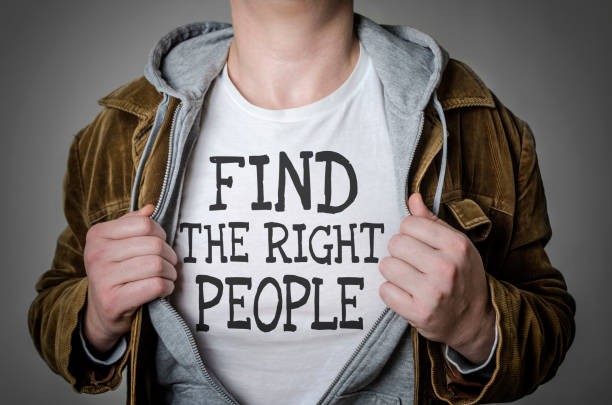
The Value of Open Questions
The great Romanian—French playwright Eugene Ionesco once said: “It is not the answer that enlightens, it is the question.”
Ionesco is regarded as one of the foundational minds in the Theatre of the Absurd, a movement that turned theatre on its head by questioning every assumption of the form one could think of, from the most seemingly benign to the almost religiously revered. As one of the foremost minds in an artistic movement inspired by the thinking of Albert Camus, Ionesco evidently has some authority on the importance of questioning.
So when I first encountered this quote, I paid it careful attention. Reflecting on its meaning, I began to see that I had actually experienced this truth in my own work.
A significant portion of my work is undertaken at senior executive level. In these forums, I have worked with Board Directors, CEOs, school principals and senior leadership teams. Some extremely wealthy multi nationals are represented alongside some of the smallest and most under resourced small business.
Over many years and many, many board room and executive discussions, I’ve seen patterns emerge. In particular, I’ve observed one approach to these discussions that separates the productive from the unproductive. That difference is the use of open versus closed questions.
After encountering and thinking on the Ionesco quote, I made an effort to sit silently amongst groups of people and listen to how often people felt they needed to be heard, or needed to speak. I noticed how often people would wait desperately for someone else to finish, and then use that opportunity to jump in with their own voice, believing they had the answer or knew best on the subject. It was incredibly common. What was even more concerning was the person who would cut off a peer mid-sentence to have their voice heard, certain that they and only they knew better.
I am careful not to judge, though, because even the simple decision to “sit quietly” amongst these groups was harder than I anticipated. No matter the group, and no matter the subject of discussion, it’s in our nature to wish to be heard and understood. It’s uncomfortable to say, but I must admit that having made the prior decision to be as silent as possible is likely one of the main factors that separated me from those waiting to be heard.
So if it is in our nature to want to be heard, so deeply imbedded in us that it can often prevent us from actively listening, even to those with whom we purposely gather in order to learn from, then a conscious shift in mindset is all the more important.
The danger of ignoring how easily we default to a mindset of I know best is very real. The net result of this type of engagement – of powerful voices without equally powerful ears – is animosity, hostility, and resentment. Nobody likes to talk to people who don’t listen to them. On a level more specific to leadership, these people don’t learn anything, either. There is an important message in this for leaders, and especially those who want to learn. This should include all of them.
The solution, I believe, is to foster a culture that defaults to open questions.
Asking more open questions is a way of influencing not only the way others respond, but also the way we listen. Our thinking influences our behaviour, but the reverse is also true. If you make an effort to ask more open questions, you also train yourself to be a more open listener. The mindset that prefers open questions is one that necessarily prefers for people to speak more freely and personally. When we ask closed questions, we’re likely asking someone for an answer we already expect. But when we ask open questions, we are purposely seeking an answer for the reason that we cannot expect to know what it will be.
Therefore, I’ve committed to beginning more questions with the words ‘who, what, when, where and how.’
Some examples of open questions include:
- Who did you call on for support during that time?
- Where were you when you first noticed this change?
- When did you realise things weren’t going to plan?
- What was the situation you found yourself in last week?
- How did that approach work for you?
One word I don’t include in this list is why, because it can so easily be perceived as judgemental, or even threatening. Imagine, for example, if I asked “Why did you choose to do that?” Can you sense the judgement? You might also feel a sense of self-judgement start to brew inside you when you ask yourself questions like this. This line of questioning is unnecessary because we can achieve so much with the other five types of questions, without the same danger of judgement.
Questions starting with the first five words do what the great leaders do best: they lead people to their own solutions.
As I mentioned, the leaders I work with come from an almost dizzyingly wide range of backgrounds and contexts, and so I avoid giving my personal ‘advice’ at all costs. It simply cannot be applicable all of the time. Instead, my goal is to foster the kind of open discussion that allows leaders to learn from those around them who have faced similar challenges and whose experience is therefore much more immediately applicable.
In the same vein, open questions are an effective way to steer a culture in the right direction without brute force or coercion. In Ethics Trump Power, I tell the story of a near-catastrophic mistake made by a few members of my squadron during my time in the RAAF, and how important it was for me to set my ego aside when I first spoke to the crew after the incident. Their mistakes had already been made, and most certainly not intentionally, so I knew that a yelling fit wasn’t going to help anyone (nor does it ever). Instead, I hoped that everyone involved would learn, and that the squadron as a whole could at least benefit from the close call.
“The following day, I called everyone together and acknowledged how we each felt differently in relation to this issue, and how some might have felt that I was being too soft. What I didn’t share with them was how hard I needed to fight against the institution that was seeking a traditional retribution. That was my issue to bear, not theirs. I asked every member to consider how they would honestly answer these four questions:
- If it were you in the same situation, how would you want me to deal with you?
- If it were you in the same situation, what do you think I could say to you that would make you feel any worse, or more responsible, than you would already be feeling?
- If it were you in the same situation, what would you need most from your mates while you are at your lowest point?
- And because it is your squadron as much as it is mine, what should we all be doing now to help us become united and stronger, not divided and weaker?”
In answering these questions, each member of the squadron considered a number of perspectives and possibilities that simply hadn’t crossed their minds before. All at once, they realised the pressure I was under, the uncertainty of those above me, and, most importantly, the power they still had. The final question, in my opinion, is the most important. Not only do I acknowledge that the squadron is theirs as much as it is mine, I ask for their help, by way of their ideas. It couldn’t be clearer, then, that I mean it when I say the squadron belongs to all of us.
As I noted earlier, there is a place for closed questioning, but it is much more nuanced, and therefore needs much more careful consideration. An open question will always lead to a productive outcome, even if that outcome is simply that the person answering will feel like someone is listening to them – a result that cannot be underestimated. On the contrary, a closed question has a much more narrow set of productive outcomes, so deploy them wisely.
Closed questions begin with words like ‘would, could, should, have, did, do, and is.’
For example:
- Is there anything about John’s home life that could be creating stress in the workplace?
- Should you intervene?
- Would you approach it differently next time?
Questions like these serve best as solidifiers: as attempts, towards the end of a discussion, to help someone consolidate the understandings they developed on their own while answering open questions. As such, I believe the most productive way to use closed questions is as supplements or conclusions to a discussion primarily guided by open questions.
As a leader, it is your job to guide your team to their most productive practices and behaviours. This does not mean it’s your job to tell them what to do. Instead, it’s in everyone’s best interest that team members come to their own conclusions. It’s a more productive use of your finite time and resources as their leader, the individuals are more likely to commit to actions that they have decided for themselves are important, and there will inevitably be a plethora of ideas and solutions that your team will come up with that you would not have conceived of on your own. It’s a win-win-win.
So, both of yourself and of your team:
What are the questions you should be asking?



